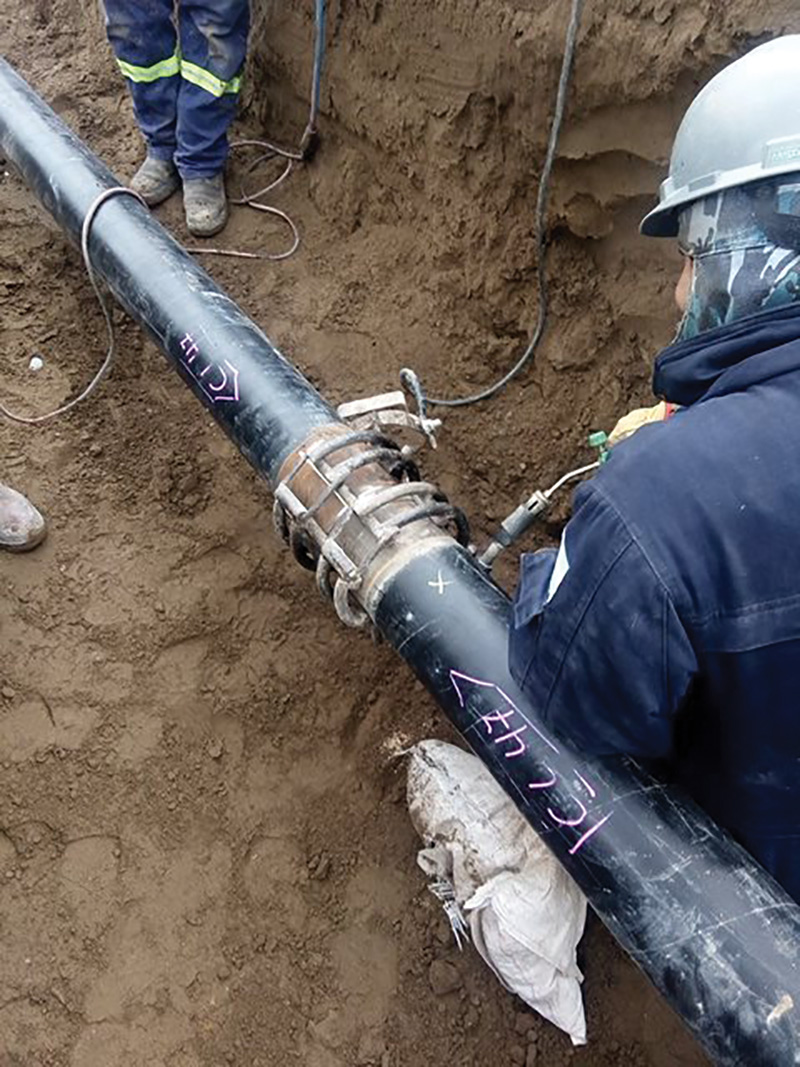Vista Energy to Invest $1.1 Billion in Argentina's Vaca Muerta Shale Expansion
(Reuters) — In a push to unlock more of the oil riches buried in a massive shale deposit in Argentina, Vista Energy will invest about $1.1 billion this year as it also aims to cut costs there by double digits, the firm's chief executive told Reuters.
Miguel Galuccio, Vista Energy's founder and CEO, offered the near-term development plan for the Vaca Muerta shale formation in a Zoom interview from New York, where he was celebrating the company's five-year anniversary on the New York Stock Exchange.
Shares have surged more than 460% since the company's initial public offering.
The company also trades on the main stock index in Mexico, where it operates an onshore field.
But Vaca Muerta, the world's largest shale project in development outside the United States, is by far the company's top project. It is also the Argentine government's main hope for reversing a longstanding energy deficit that has forced it to finance costly imports over decades.
Galuccio noted how the project has taken off in just over a decade.
"In 2012, Vaca Muerta was for believers. Today Vaca Muerta is for engineers," he said, touting expected production gains.
Since last year, output from the deposit has more than doubled to reach 65,000 barrels of oil equivalent per day (boepd) in this year's second quarter.
The breakneck growth will likely continue as output in the fourth quarter is seen hitting 85,000 boepd, on its way to reaching 100,000 boepd in 2026 and 150,000 boepd by the end of the decade, said Galuccio.
To prime the expansion, Vista will invest in more wells and related transport infrastructure in the area, located in Argentina's western Neuquen province, where it already has 1,150 new well locations identified across more than 200,000 acres, according to company data.
The former chief executive of state-owned oil producer YPF, Galuccio said Vista added its third drilling rig to its Vaca Muerta operations earlier this year and will bring on a second fracking crew in the fourth quarter.
Fracking, short for hydraulic fracturing, is a common industry practice that allows oil and gas to flow out from dense shale rock.
The technique requires blasting sand, toxic chemicals and large quantities of water into wells, which environmentalists criticize as harmful to aquifers and likely linked to a rise in earthquakes.
While Vaca Muerta's lifting costs settled at $4.50 per barrel in the second quarter, the executive sees the extraction costs dipping around 11% to $4 by 2026.
He described the expected cost at near the technical limit, from about $18 per barrel when production began.
Galuccio flagged that insufficient pipeline capacity was the local industry's biggest bottleneck last year, but pointed to plans to address that by doubling capacity on midstream operator Oldelval's pipeline network, as well as separate expansions on the Vaca Muerta Sur and Norte pipelines.
He also stressed that Argentina could use more help developing the massive shale formation, which is about the size of Belgium.
"Vaca Muerta needs more Vistas and more investment," he said.
Related News
Related News

- Kinder Morgan Proposes 290-Mile Gas Pipeline Expansion Spanning Three States
- Valero Plans to Shut California Refinery, Takes $1.1 Billion Hit
- Three Killed, Two Injured in Accident at LNG Construction Site in Texas
- Tallgrass to Build New Permian-to-Rockies Pipeline, Targets 2028 Startup with 2.4 Bcf Capacity
- TC Energy Approves $900 Million Northwoods Pipeline Expansion for U.S. Midwest
- U.S. Pipeline Expansion to Add 99 Bcf/d, Mostly for LNG Export, Report Finds
- Enbridge Adds Turboexpanders at Pipeline Sites to Power Data Centers in Canada, Pennsylvania
- Great Basin Gas Expansion Draws Strong Shipper Demand in Northern Nevada
- Cheniere Seeks FERC Approval to Expand Sabine Pass LNG Facility
- Heath Consultants Exits Locate Business to Expand Methane Leak Detection Portfolio





Comments